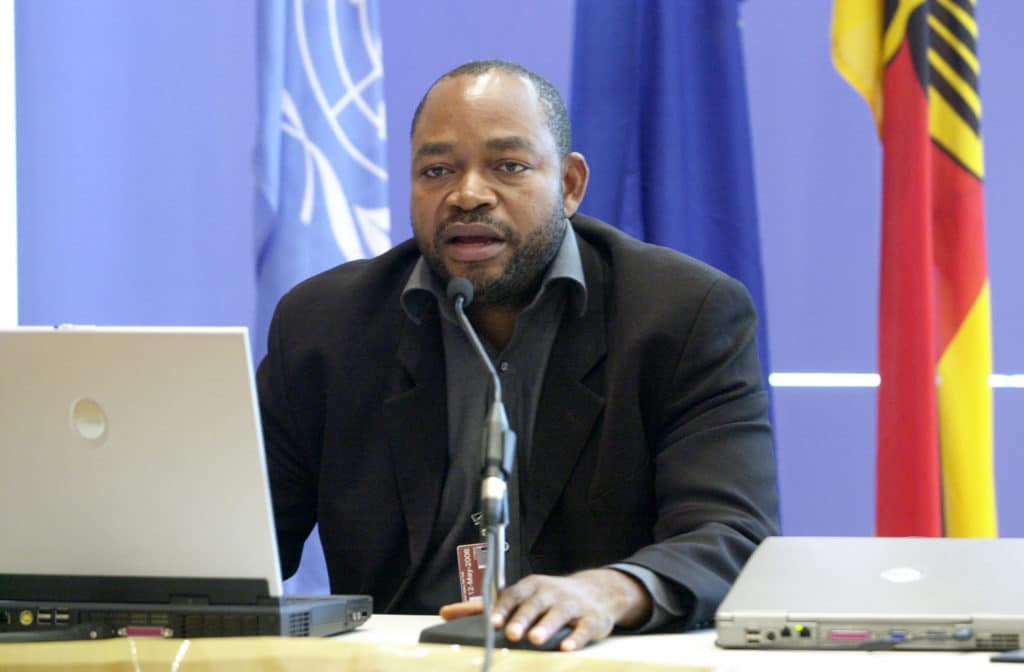Executive Director, International Centre for Energy, Environment and Development (ICEED), Ewah Eleri, has commended the Federal Ministry of Environment for its commitment in championing the drafting of a Clean Cooking Policy.

Eleri, who made the commendation on Monday, December 12, 2022, while delivering a welcome address at the cooking training for staff of the Clean Cooking Unit, Department of Climate Change, Federal Ministry of Environment, and some key stakeholders in Abuja, also lauded the ministry for establishing a National Clean Cooking Committee to support efforts in creating an enabling environment for the expansion of clean cooking access and meeting its developmental and environmental goals.
He said: “The training is apt as the capacity of the Clean Cooking Unit in the Federal Ministry of Environment needs to be built so they can discharge their institutional leadership responsibility in the clean cooking industry.”
Precious Onuvae, Research and Partnership Manager, ICEED, and Secretary, Nigerian Alliance for Clean Cooking, co-facilitated the training. She thanked the Heinrich Boell Foundation for their continued support in promoting access to clean cooking in Nigeria. She urged the participants to pay attention to the details of the training so they can be good ambassadors of clean cooking in their respective organisations and spheres of influence.
According to the training facilitator, Okechukwu Ugwu, “clean cooking programming should be a collaborative effort between the government and private sector stakeholders”.
He urged the government and private stakeholders present to adopt lessons from the training on the need to regularly interface and seek advice from the private sector and civil society to ensure that issues around clean cooking are adequately reflected in government plans and actions.
Asmau Jibril, Chief Scientific Officer in charge of the Clean Cooking Unit, Federal Ministry of Environment, in her closing remark, commended the Heinrich Boell Foundation for funding the training, noting: “This is the first of its kind in the Ministry”.
She thanked ICEED for their untiring support and pledged the ministry’s continued efforts in expanding access to clean cooking.
The training took participants through the basic concepts and overview of clean cooking in Nigeria, and the sources of local and international financing for clean cooking, benefits and limitations and opportunities that Nigeria can tap into to expand the clean cooking sector. It also took participants through the process of developing an effective advocacy and communication strategy that can be used as a tool to influence clean cooking programming both at the national and sub-national levels.
The training was aimed at preparing the Clean Cooking Unit in the Federal Ministry of Environment to carry out its institutional mandate of advancing the goal of clean cooking in Nigeria. Other stakeholders trained were better equipped to implement their clean cooking activities and move the industry forward.
The two-day in-person training took participants through series of modules including an overview of clean cooking in Nigeria, financing the clean cooking Industry, advocacy and communicating the value of clean cooking, growth strategy among others. At the end of the workshop every participant presented a summary of key takeaways and plans for expanding access to clean cooking in their organisations.
Nigeria is said to be facing a silent energy crisis. According to observers, only one in ten households in the country use clean energy sources and technologies for cooking. Traditional cooking with firewood and other polluting fuels such like kerosene and charcoal are claiming lives, destroying the environment, and putting a burden on women.
In its updated Nationally Determined Contribution (NDC), Nigeria made a firm commitment to expand access to clean cooking. By 2030, the country aims to provide access to LPG for 48% and improved biomass cookstoves to 13% of households. This will save over 30,000 lives per annum, build a domestic clean cooking industry and create new jobs, reduce deforestation, assist the government in meeting its climate change commitments, meet its pledge to reduce Short Lived Climate Pollutants (SLCP) and improve the lives of women.
